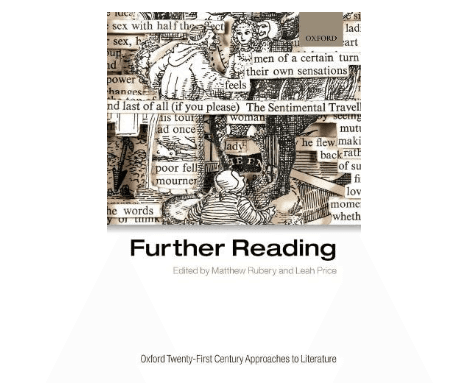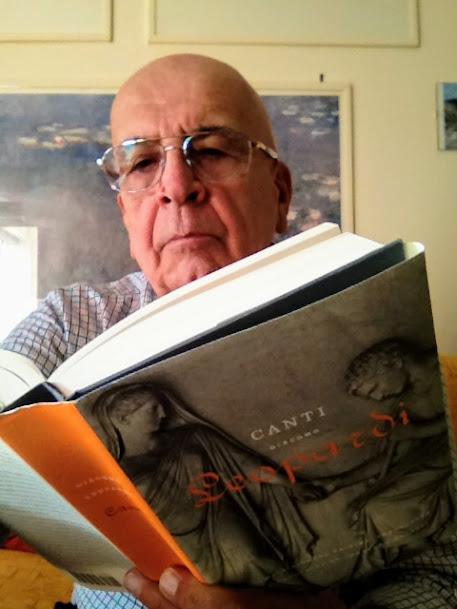The Meaning of Reading
Curated from: medium.com
Ideas, facts & insights covering these topics:
14 ideas
·249 reads
Explore the World's Best Ideas
Join today and uncover 100+ curated journeys from 50+ topics. Unlock access to our mobile app with extensive features.
Reading in the 21st Century
What does reading mean in the 20st century? As other disciplines challenge literary criticism’s authority to answer this question, English professors themselves are defining new alternatives to close reading and to interpretation more generally.
Further Reading brings together thirty commissioned essays drawing on approaches as different as formalism, historicism, neuroscience, disability, and computation.
Contributors take up the following questions: What do we mean when we talk about “reading” today? How are reading techniques evolving in the digital era? What is the future of reading?
1
39 reads
A Topic Worthy of Investigation
This book foregrounds reading as a topic worthy of investigation in its own right rather than as a sub-section of histories of the book, sociologies of literacy, or theories of literature.
As our knowledge of reading changes in step with the media and the scholarly tools used to apprehend it, a more precise understanding of this topic is crucial to the discipline’s future.
This collection therefore seeks to introduce new ways of conceptualizing the term’s forms, boundaries, and uses. Its contributors bring varied vocabularies to bear on the contested nature and continued importance of reading.
1
17 reads
The Vital Question
Edited by Matthew Rubery and Leah Price, "Oxford Twenty-First Century Approaches to Literature" addresses the vital question: What do we mean when we talk about 'reading'?
Thinks expansively about the scope of the term 'reading' and its various techniques within today's rapidly changing multimedia environment
Explores the complexity of reading in the twenty-first century from various perspectives both within literary criticism and from other disciplines
1
20 reads
“Work-in-Progress”
What does it mean to read today in the 21st century? Certainly something very different from what he was reading until Marshall McLuhan, sensing the imminent changes in the world of human communication, wrote that decisive idea of him in that important book: The Medium is the Message.
Since all the human components are involved, the act of reading takes on a dimension of meaning never had before. From the title of this book the intentions of the authors can be understood: to make it clear that reading is a continuous “work-in-progress”, understood as change and transformation.
1
16 reads
Thirty-One Essays
The book brings together thirty-one essays drawing on different approaches such as formalism, historicism, neuroscience, disability, calculus and many other things. Employees try to give reasonable answers to the following questions:
What do we mean when we talk about "reading" today? How are reading techniques evolving in the digital age? What is the future of reading?
This collection of essays introduces new ways of conceptualizing the forms, boundaries and uses of the term. The contributions of the various writers move on different levels of study.
1
25 reads
Ancient and Modern Scenarios
They range from ancient and modern scenarios, to public and private, individual and collective. Styles can be close at hand or distant, technical or critical, planned or assigned.
The senses of the reader are also involved, such as sight, sounds, touch and contact, orality and deafness, in terms of accessibility. A very important scenario is, of course, the brain.
Neuroscience, representation and mental reading are involved with social status, awareness and the pleasure of reading, without ignoring possible problems, such as dyslexia.
1
18 reads
The Future
The scenario of the future is one that offers important stimuli to understand how and to what extent technology will affect our reading intentions.
How do technologies track our reading? Digital devices today can monitor not only what is electronically read, but when, where and for how long.
It aims to highlight what is new or different in emerging digital technologies and the forms of reading they promote.
1
19 reads
Scrolling the Book
As I said before, not having the possibility to have the book in my hands (it was only published in paper version at a not very popular price), I was able to "scroll", so to speak, the summary of the chapters in a digital on the website of the OUP publishing house.
Very conveniently, readers are offered the opportunity to read the summary of the chapters to stimulate their purchase in full. Here is a practical demonstration of how many ways of reading we have available with modern technology.
1
19 reads
The Market
The opening is to the market. Readers of this new anthology may feel eerily aware of what they are actually doing when they are reading.
A reading can be “assigned”, studying it because they have to (if, for example, they need to review it for a literary journal) or in a linear way, skipping some parts and returning several times to others; a "repeated" reading mode; they can recite parts aloud to someone else, a standard practice already in use in ancient Rome.
1
14 reads
Reading or Being Read
At that time, "reading" actually meant "being read by one's slave". If we are handling and turning the pages of a physical copy, we will experience the book in a tactile mode. We may also suddenly realize that we are "subvocalized" to the mental sound of written syllables if we read in audio.
At this point readers may also end up wondering what the heck reading is. This is precisely the point of this fascinating collection. It has become a hot topic in the academic world, and beyond, in recent years, as evidenced by an increasingly complicated taxonomy of its different modalities.
1
12 reads
Hyper Book
Near, deep, distant, superficial and hyper. But instead of diligently mapping the state of the field of study, the book pushes its boundaries and creates new connections, as the title itself suggests.
This book is an interesting contribution to the study of reading not because it provides a definitive picture of the subject, but because it provides a vast and heterogeneous one.
His thirty-one essays span different disciplines and different points of view: studies on disability, calculus, neuroscience and psychology, as well as bibliography.
1
17 reads
A Different Way of Reading
A fundamental theme emerges: that evanescent sentimentality that often surrounds reading is questioned.
The editors write: "Here you will not find any casual statement such as reading makes us better people". The conventional image of reading as a silent and solitary immersion in literature is constantly canceled.
In one way or another, we find ourselves always reading in every moment of our modern life, whether we want it or not.
The world is constantly assaulting us with scrolling, flashing and ephemeral signs, billboards and messages of all kinds, including all digital media.
1
12 reads
Algorithmic Technologies
The final section of the book, "Futures," is more speculative. Explore the outer boundaries of reading. Here the focus shifts from what is being read to the strangest question of who or what is being read.
In the era of automatic reading, it is we who are "read by the minute" by algorithmic technologies.
Likewise, it is underlined how our media have turned the tide: a Kindle reads to us as much as we read it, monitoring our progress and recording our favorite passages.
Even the "artist's books" play an important part with the idea of heat-sensitive pages.
1
10 reads
A Reading-Pill Chip
They respond, that is, to the touch of a reader's hand to reveal the hidden text. It goes even further: reading can be performed routinely, in collaboration with “non-human actors” (machines, screens and software).
Poetry becomes electronic and self-animated, it suggests creations. It works in ways that don't require the involvement of an external reader. It reads effectively by itself.
Reading may soon, at least in some contexts, become something that humans are no longer central to, or even necessary for. Thus we come to the "pill-chip" that reads for us ... "Further reading", in fact!
1
11 reads
IDEAS CURATED BY
Similar ideas
10 ideas
Are We Becoming All Artificial?
angallo.medium.com
5 ideas
Who Will Pay for General Artificial Intelligence?
angallo.medium.com
4 ideas
Read & Learn
20x Faster
without
deepstash
with
deepstash
with
deepstash
Personalized microlearning
—
100+ Learning Journeys
—
Access to 200,000+ ideas
—
Access to the mobile app
—
Unlimited idea saving
—
—
Unlimited history
—
—
Unlimited listening to ideas
—
—
Downloading & offline access
—
—
Supercharge your mind with one idea per day
Enter your email and spend 1 minute every day to learn something new.
I agree to receive email updates


